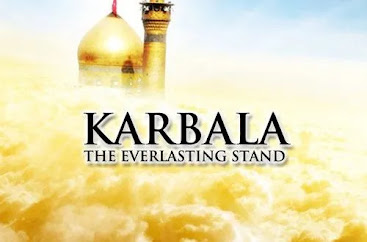The Top 10 Islamic Historical Movies
Asslam o Alekum Dosto! Aaj hum Aap ke liye 10 aisi tarikhi (Historical) islamic movies ka taruf le kar aye hain jo aap ko yaqeenan achi lagen gi aur aap ki malomat main be panah izafa bhi karen gi...
Ye Movies Aap Yahan Click kar ke bhi dekh sakte hain:
Journey To Makkah
Watch Now
Kingdom Of Heaven
Kingdom of Heaven is a 2005 epic historical fiction drama film directed and produced by Ridley Scott and written by William Monahan. It stars Orlando Bloom, Eva Green, Ghassan Massoud, Jeremy Irons, David Thewlis, Brendan Gleeson, Edward Norton, Marton Csokas, Liam Neeson, Michael Sheen, Velibor Topić, and Alexander Siddig.
The story is set during the Crusades of the 12th century. A French village blacksmith goes to the aid of the Kingdom of Jerusalem in its defence against the Ayyubid Muslim Sultan, Saladin, who is fighting to claim back the city from the Christians; this leads to the Battle of Hattin. The screenplay is a heavily fictionalised portrayal of the life of Balian of Ibelin (c. 1143–93).
Watch Now
Karbala - Hussain's Everlasting Stand
Watch Now
Muhammad: The Messenger of God
Muhammad: The Messenger of God (Persian: محمد رسولالله, romanized: Mohammad Rasulollah) is a 2015 Iranian Islamic epic film directed by Majid Majidi and co-written with Kambuzia Partovi. The film, set in the sixth century, revolves around the childhood of the Islamic prophet Muhammad.
The film marks the biggest-budget production in Iranian cinema to date[3] Development of Muhammad: The Messenger of God began in 2007 and Majidi wrote the first draft of the screenplay by 2009. By 2011, a colossal set created in the city of Qom near Tehran was ready for the majority of the film. Throughout the filming process, Majidi worked with a team of historians and archaeologists for the work on accuracy of the early life of Muhammad. Post-production works began in Munich during late 2013 and were completed in 2014. The cinematography is done by Vittorio Storaro and film score is composed by A. R. Rahman.
Watch Now
Battle of Empires or Fetih 1453
Watch Now
Kingdom of Solomon
Watch Now
Uwais al Qarni
Awais bin Bashir (Arabic: أُوَيْس ٱبْن عَامِر ٱبْن جَزْء ٱبْن مَالِك ٱلْقَرَنِيّ, ʾUways ibn ʿĀmir ibn Jazʾ ibn Mālik al-Qaranīy), also spelled Uways or Owais, was a Muslim from Yemen who lived during the lifetime of the Islamic prophet Muhammad.[1]
His burial place is in Raqqa, Syria. Although he lived during the lifetime of Muhammad, he never physically met him so he is not counted among the Companions of the Prophet.
Among the Tabi'un he is specially known as Khayr al-Tabi'een (Arabic: خَيْر ٱلتَّابِعِين, lit. 'The Best of the Tabi'un') and Sayyid al-Tabi'een Fi Zamanahu (Arabic: سَيِّد ٱلتَّابِعِين فِي زَمَانَه, lit. 'Leader of the Tabi'un of his Era'). His memorial shrine is in al-Raqqah, Syria. It was destroyed by ISIS in 2013.[2]
Watch Now
Al Nebras
Watch now
The Message
The Message (Arabic: الرسالة, Ar-Risālah, lit. Prophecy; originally known as Mohammad, Messenger of God) is a 1976 Islamic epic drama film directed and produced by Moustapha Akkad, chronicling the life and times of the Islamic prophet Muhammad through the perspective of his uncle Hamza ibn Abdul-Muttalib and adopted son Zayd ibn Harithah.[4][5]
Released in separately-filmed Arabic- and English-language versions, The Message serves as an introduction to early Islamic history. The international ensemble cast includes Anthony Quinn, Irene Papas, Michael Ansara, Johnny Sekka, Michael Forest, André Morell, Garrick Hagon, Damien Thomas, and Martin Benson. It was an international co-production between Libya, Morocco, Lebanon, Syria and the United Kingdom.
The film was nominated for Best Original Score in the 50th Academy Awards, composed by Maurice Jarre, but lost the award to Star Wars (composed by John Williams). Then-Libyan leader Muammar al-Gaddafi provided the majority of the financial support.




,_The_Messenger_of_God_(album_art).jpg)

.jpg)


.jpg)
0 Comments